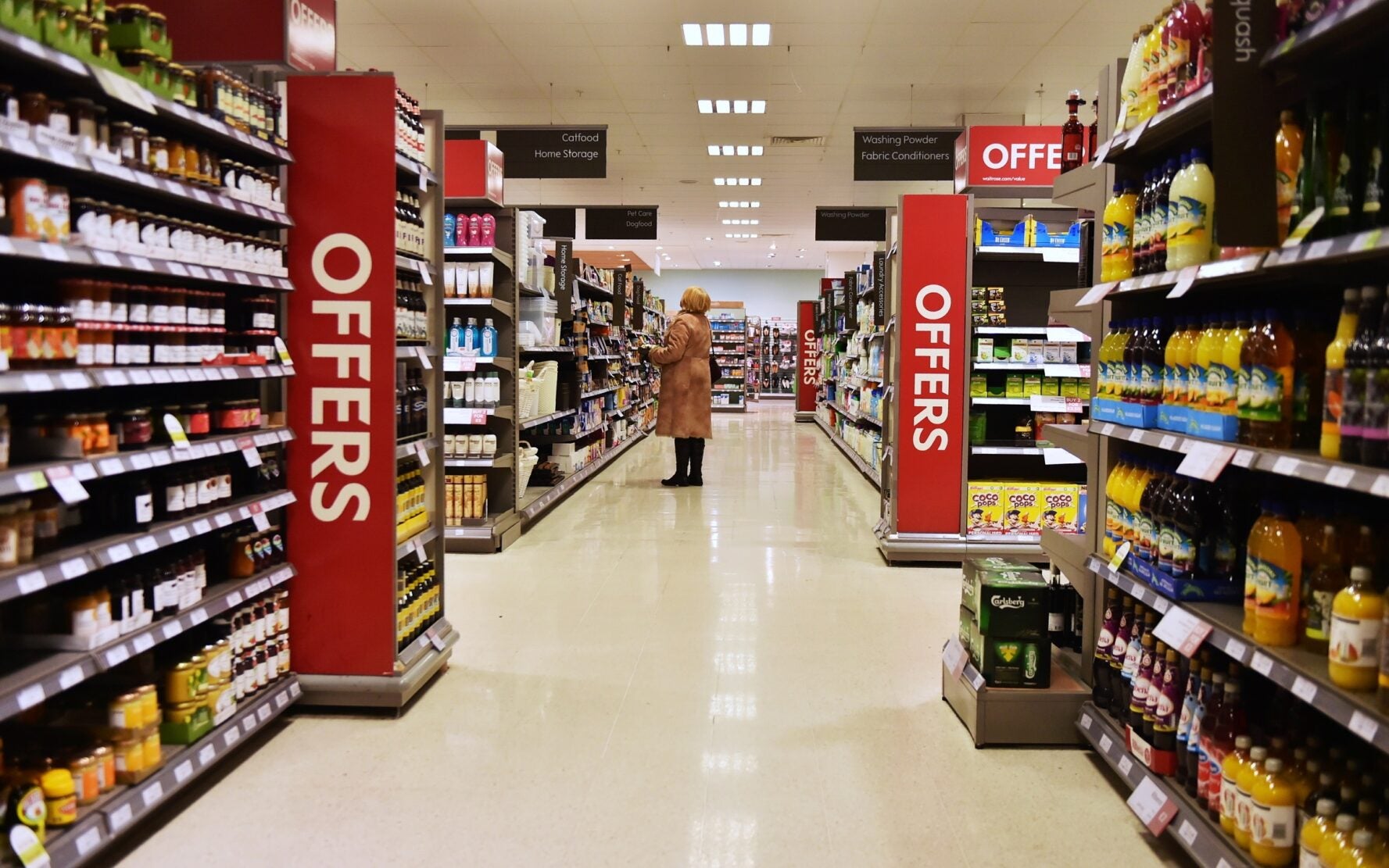
UK food and beverage prices eased in May for the second consecutive month while headline inflation remained static, Office For National Statistics (ONS) figures show.
Headline inflation, for all items measured by the ONS’s consumer prices index (CPI), rose by 8.7% in the 12 months to May, remaining unchanged from April.
Meanwhile food and non-alcoholic beverages CPIH, which includes housing costs, rose 18.4% year-on-year in May, compared to 19.1% in April. On a monthly basis, food inflation pulled back to 0.9% in May, compared to 1.5% in May last year.
Alcohol and tobacco rose slightly however, from 9.1% in April to 9.2% in May.
Karen Betts, CEO of industry body The Food & Drink Federation, said the drop-off was “encouraging”.
She added: “However, we know too how concerned households remain about the costs of the weekly shop and food and drink manufacturers are continuing to drive down costs wherever they can.”
“But the fact remains that the cost of ingredients, energy, labour, packaging, logistics and other inputs remain stubbornly high and still some way above pre-pandemic levels.
“High input costs and a challenging regulatory environment are taking their toll on the sector too, with insolvencies on the rise, now more than double their pre-pandemic level for our sector, and overall output shrinking.”
Helen Dickinson, CEO of the British Retail Consortium, welcomed the fall in food inflation but called upon the government to hold back on “new policies that would add costs to retailers”.
“While some prices continue to rise, we are now seeing regular news reports of falling prices on many essential products, such as loo rolls and vegetable oil,” she said. “It has been good to see larger drops in inflation rates for flour, milk and eggs as retailers continue to invest heavily in lower prices for the future and locking the price of many essentials.”
Overall inflation remains at its lowest point since Russia’s invasion last year. Prices of flights, recreational goods and secondhand cars led the upward tick in CPI in May while dropping fuel inflation led the largest downward trend.
Meanwhile, the Bank of England is expected to raise interest rates by 0.25% tomorrow (22 June) to 4.75% to tackle inflation although some predict this figure could be higher.
Jonathan Moyes, head of investment research at financial advisor Wealth Club, predicted the interest rate could be lifted by up to 0.5%. “This is a real headache for the Bank of England,” he said.
“There is a sense that the economy is increasingly fragile, financial conditions are tightening, and yet inflation continues to defy expectations.”
